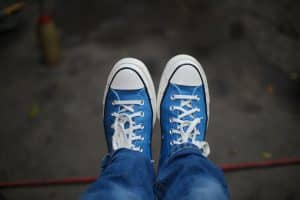The Connection Between Physical Activity and Learning
Maintaining an active lifestyle has numerous physical and mental health benefits. However, research has also shown that physical activity can have a profound impact on our cognitive abilities. From improved memory and concentration to enhanced problem-solving skills, the connection between physical activity and learning is undeniable. In this article, we will dive deeper into this link and explore the ways in which regular exercise can help boost our brains.
The Importance of Physical Activity for Our Bodies and Minds
It’s no secret that staying physically active is essential for our overall well-being. Engaging in regular exercise has a plethora of benefits, including strengthening our muscles and bones, improving cardiovascular health, and reducing the risk of chronic diseases. But what many people don’t realize is that physical activity also plays a crucial role in maintaining a healthy mind.
When we exercise, our bodies release endorphins, which are chemicals that make us feel happy and reduce stress and anxiety. Additionally, physical activity increases blood flow to the brain, providing it with essential nutrients and oxygen. As a result, we experience improved mood, reduced feelings of depression, and increased energy levels. But the connection between physical activity and our brains goes beyond just boosting our mood.
The Role of Physical Activity in Learning and Cognition
Numerous studies have shown that regular physical activity can significantly impact our learning and cognitive abilities. By engaging in cardiovascular exercises like running, swimming, or dancing, we stimulate the growth of new brain cells, a process called neurogenesis. This growth leads to an increase in brain volume, particularly in the hippocampus, which is responsible for memory and learning.
Moreover, regular physical activity has been linked to improved executive function, which includes skills such as problem-solving, decision-making, and multitasking. This is because exercise helps increase the production of BDNF (brain-derived neurotrophic factor), a protein that promotes the growth of new brain cells and neural pathways. This, in turn, enhances communication between different regions of the brain, resulting in improved cognitive function.
The Impact of Physical Activity on Children’s Learning
While the benefits of physical activity on our cognitive abilities apply to people of all ages, it is especially crucial for children and their learning development. According to a study published in the Journal of Physical Activity and Health, physically active children perform better academically, have better memory and attention span, and exhibit improved behavior and focus in the classroom.
One possible explanation for this is that exercise promotes the release of a chemical called IGF-1 (insulin-like growth factor-1) in the brain, which plays a vital role in the growth and development of nerve cells. As a result, physically active kids have increased neural connectivity and function, ultimately leading to improved academic performance.
Incorporating Physical Activity into our Daily Routines
With the growing awareness of the connection between physical activity and learning, many schools have started incorporating exercise into their academic curriculum. Some have implemented short exercise breaks during class, while others offer PE classes multiple times a week.
But regardless of our age or occupation, it’s essential to make physical activity a part of our daily routines. This doesn’t necessarily mean having to hit the gym every day. Something as simple as going for a walk, playing a sport, or doing yoga can provide tremendous benefits for our cognitive abilities. Additionally, incorporating physical activity breaks in between studying or work can help enhance focus and productivity.
The Bottom Line
Physical activity is not just vital for maintaining a healthy body; it is also crucial for maintaining a healthy mind. The connection between physical activity and learning is well-established, with numerous studies highlighting the positive impact of exercise on our cognitive abilities. So, let’s make an effort to incorporate regular physical activity into our lives and reap the benefits for both our bodies and minds.









